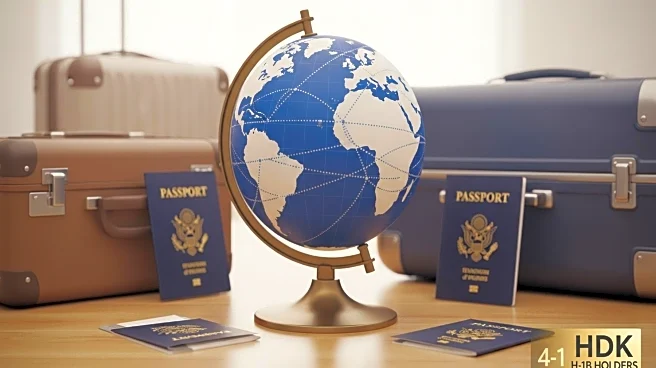What is the story about?
What's Happening?
President Trump's visa policies have led to a significant number of H-1B visa holders, like Qian Zhang, seeking opportunities outside the United States. Zhang, who moved to the U.S. in 2009, experienced the challenges of living on an H-1B visa, which tied her job security and residency to her employment status. The increasing visa processing delays and audits during Trump's administration heightened her anxiety, ultimately leading her to relocate to Portugal. This trend reflects a broader disillusionment among foreign professionals who once viewed the U.S. as a land of opportunity.
Why It's Important?
The shift of H-1B visa holders moving abroad highlights the potential loss of skilled talent for the U.S. economy. As these professionals seek more stable and welcoming environments, countries like Portugal are benefiting from their expertise. This trend could impact industries heavily reliant on foreign talent, such as technology and finance, potentially leading to a talent shortage. The U.S. may face challenges in maintaining its competitive edge in the global market if it continues to lose high-skilled workers to other countries with more favorable immigration policies.
What's Next?
As more H-1B visa holders consider relocating, the U.S. may need to reassess its immigration policies to retain skilled talent. The government and businesses might explore new strategies to make the U.S. a more attractive destination for foreign professionals. Additionally, other countries may continue to capitalize on this trend by offering more favorable visa policies and living conditions. Stakeholders, including policymakers and industry leaders, will likely engage in discussions on how to address these challenges and retain global talent.















